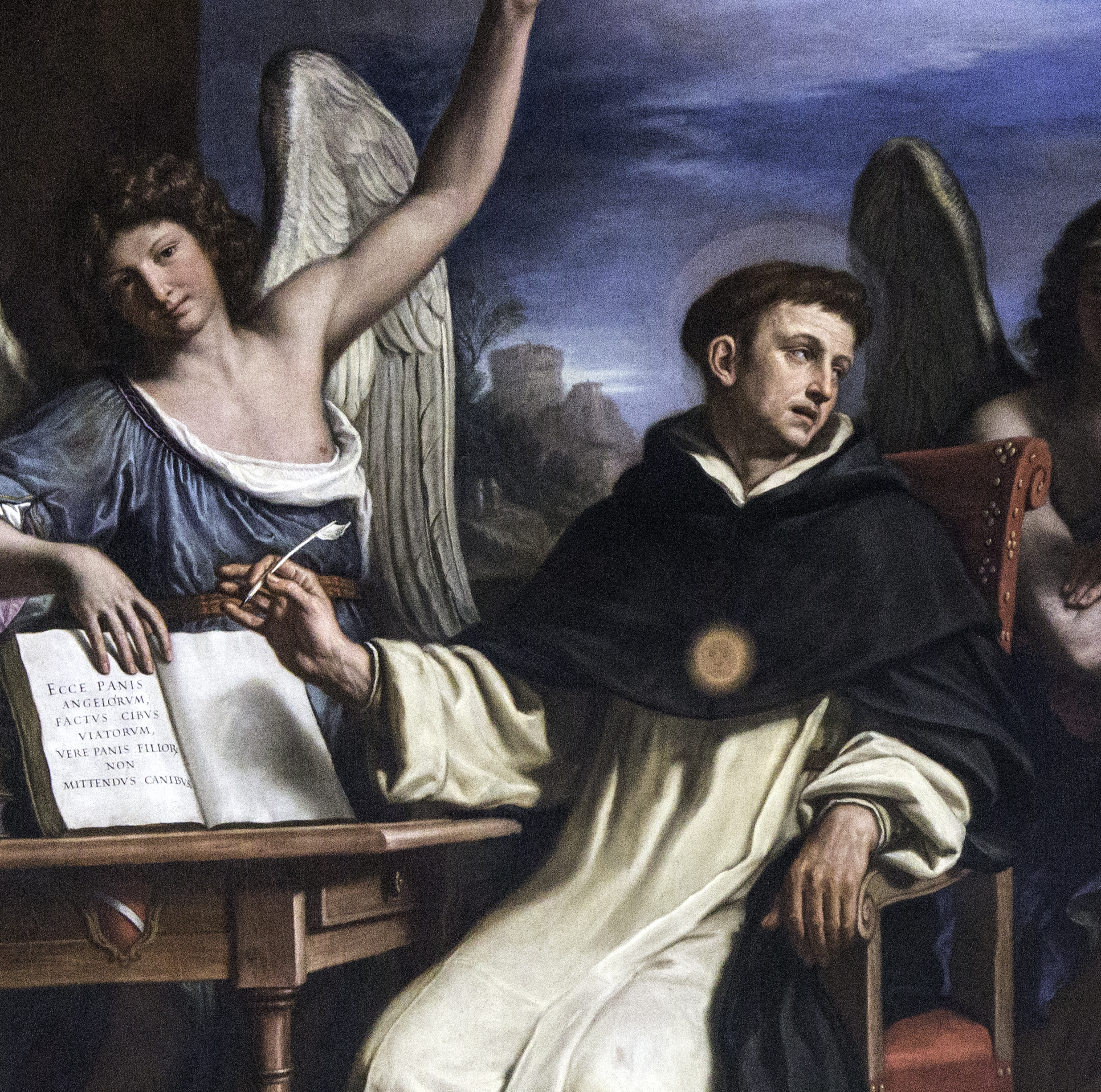Chapter 26: The Treatise On Man¶
In his commentary on Aristotle’s work, De anima, the method of St. Thomas had been philosophical, ascending progressively from vegetative life to sense life, from sense life to intellectual life, and finally to the principle of intellective acts, the spiritual and immortal soul. In the Summa, on the contrary, he follows the theological order, which first studies God, then creatures in their relation to God. Hence, after treating of God, then creation in general, then of angels, he now treats of man, under five headings:
The nature of the human soul.
The union of soul with body.
The faculties of the soul.
The acts of intelligence.
The production and state of the first man.
Before we follow him, let us recall that St. Thomas pursues a golden middle way, between the Averroists and the Augustinians.
Averroes 620 maintained that human intelligence, the lowest of all intelligences, is an immaterial form, eternal, separated from individual man, and endowed with numeric unity. This intelligence is both agent intellect and possible intellect. Thus human reason is impersonal, it is the light which illumines individual souls and assures to humanity participation in eternal truths. Hence Averroes denies individual souls, and also personal liberty. Such was the doctrine taught in the thirteenth century by the Latin Averroists, Siger of Brabant and Boethius of Dacia. Against these St. Thomas wrote a special treatise. 621.
Siger 622 maintained that, beside the vegetativo-sense soul, there exists indeed an intellective soul, but that this soul is by its nature separated from the body, and comes temporarily to the body to accomplish there its act of thought, as, so he illustrates, the sun illuminates the waters of a lake. Thus the intellectual soul cannot be the form of the body, for then, being the form of a material organ, it would itself be material and therefore be intrinsically dependent on matter. This intellectual soul is unique, for it excludes from itself even the very principle of individuation, which is matter. Still it is always united to human bodies, because, although human individuals die, humanity itself is immortal, since the series of human generations is without beginning and will never end. 623.
On the other hand, some pre-Thomistic theologians, notably Alexander of Hales and St. Bonaventure, admitted a plurality of substantial forms in man and also a spiritual matter in the human soul. These theologians were seeking, unsuccessfully, to harmonize the doctrine of St. Augustine with that of Aristotle. The multiplicity of substantial forms did indeed emphasize St. Augustine’s view about the soul’s independence of the body, but at the same time compromised the natural unity of the human composite.
Steering between these two currents, St. Thomas maintains that the rational soul is indeed purely spiritual, entirely without matter and hence incorruptible, but that it is nevertheless the form of the body, rather, the one and only form of the body, although in its intellectual and voluntary acts it is intrinsically independent of matter. And if in these acts it is independent, then it is independent of the body also in its being, and, once separated from the body which gave it individuation, it still remains individualized, by its inseparable relation to this body rather than to any other.
Turning now to special questions, we shall continue to underline the principles to which St. Thomas continually appeals, and which Thomists have never ceased to defend, particularly against Scotus and Suarez, who still preserve something of the theories held by the older Scholasticism. Thus Scotus admits, first a materia primo prima in every contingent substance, even in spiritual substances, and holds, secondly, that there is in man a form of corporeity distinct from the soul, and that, thirdly, there are in the soul three formally distinct principles, that of the vegetative life, that of the sense life, and that of the intellective life.
He likewise holds, against St. Thomas, that prime matter, speaking absolutely, can exist without any form. This last thesis reappears in Suarez who, since he rejects the real distinction between essence and existence, goes on to admit that prime matter has its own existence. We shall see that the principles of St. Thomas cannot be harmonized with these positions.
